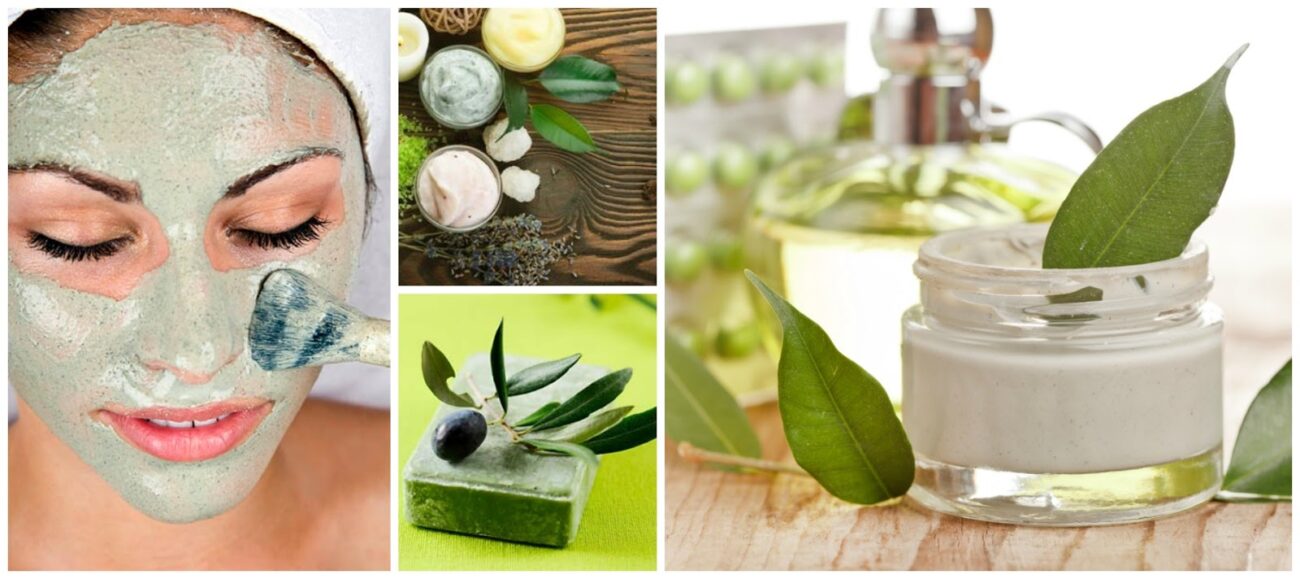In recent years, the beauty industry has seen a monumental shift toward organic skincare. Consumers, increasingly concerned with harmful chemicals and their effects on skin and overall health, are turning to nature-based solutions that promise both beauty and wellness. As an expert in skincare, I’m excited to guide you through the world of organic skincare and explain why it’s a fantastic choice for achieving healthy, glowing skin.
What Is Organic Skincare?
Organic skincare products are formulated with ingredients that are derived from plants, herbs, and natural compounds that are grown without the use of synthetic fertilizers, pesticides, or genetically modified organisms (GMOs). These products emphasize the use of ingredients that are not only better for your skin but also better for the planet.
Organic skincare works in harmony with the skin’s natural processes, providing nutrients and hydration without overwhelming it with harmful chemicals. This type of skincare is typically free from parabens, sulfates, artificial fragrances, and dyes, making it an ideal choice for those with sensitive skin or those who are simply looking for cleaner beauty alternatives. Read more about Organic Skincare Products
Why Choose Organic Skincare?
- Free from Harsh Chemicals
Traditional skincare products often contain preservatives, synthetic fragrances, parabens, sulfates, and phthalates — all of which may have adverse effects on skin health over time. These chemicals can cause skin irritation, allergies, and even disrupt hormone levels. Organic skincare products, by contrast, use natural preservatives like vitamin E or essential oils to prolong shelf life without harmful side effects.
- Packed with Nutrients
Organic skincare products are rich in vitamins, antioxidants, and essential fatty acids that nourish and protect the skin. Ingredients like aloe vera, jojoba oil, coconut oil, and green tea are frequently found in organic products due to their incredible ability to hydrate, heal, and repair skin cells.
- Gentler on Sensitive Skin
Organic skincare products are an excellent choice for those with sensitive skin or conditions like eczema, rosacea, or acne. Since they lack artificial additives, fragrances, and preservatives, they are less likely to cause irritation, redness, or breakouts. Instead, they often feature gentle botanicals that soothe and calm the skin.
- Environmental Sustainability
Organic farming methods focus on sustainable practices that protect the environment. By choosing organic skincare, you’re supporting farmers who use eco-friendly, pesticide-free methods to grow their ingredients. Additionally, many organic skincare brands adopt cruelty-free, recyclable, and eco-conscious packaging, further reducing their environmental footprint.
- Long-Term Skin Health
Organic products are not just about quick fixes. Over time, they help build the skin’s strength, resilience, and radiance. Organic skincare doesn’t just mask issues, it helps address them from the root cause by promoting balance and restoring the skin’s natural function.

Common Organic Skincare Ingredients
To better understand the value of organic skincare, it’s essential to familiarize yourself with some of the most beneficial ingredients used in these products. Here are a few key ingredients that you will find in many organic skincare formulations:
- Aloe Vera Aloe vera is known for its soothing and healing properties, making it a staple in organic skincare. It’s particularly effective for calming irritated or inflamed skin and is commonly used in moisturizers, masks, and cleansers.
- Tea Tree Oil Tea tree oil is an antimicrobial powerhouse that’s great for managing acne and blemishes. It helps to reduce inflammation, unclog pores, and prevent new breakouts from forming.
- Coconut Oil A staple in organic skincare, coconut oil is deeply moisturizing and packed with fatty acids that help strengthen the skin’s barrier. It also has anti-inflammatory and antimicrobial properties, making it an excellent choice for soothing dry or irritated skin.
- Jojoba Oil Jojoba oil is unique in that its molecular structure closely resembles the skin’s natural sebum. It hydrates the skin without clogging pores, balances oil production, and helps maintain a healthy skin barrier.
- Rosehip Oil Known for its anti-aging benefits, rosehip oil is rich in vitamin C, essential fatty acids, and antioxidants. It’s commonly used to reduce fine lines, even out skin tone, and repair sun damage.
- Green Tea Extract Green tea is loaded with polyphenols and antioxidants, which protect the skin from environmental damage and fight premature aging. It also has anti-inflammatory properties that help to calm redness and irritation.
- Shea Butter Shea butter is an excellent moisturizer that helps to nourish dry skin. Rich in vitamins A and E, it also provides a natural barrier against harmful environmental factors.
- Lavender Oil Lavender oil is not only known for its calming scent but also for its anti-inflammatory and antiseptic properties. It helps soothe irritated skin, reduce redness, and accelerate the healing process for minor cuts and burns.
- Chamomile Chamomile is often used for its calming effects. It reduces redness and irritation and can also help with conditions such as eczema or psoriasis.
- Vitamin C A powerful antioxidant, vitamin C brightens the skin, fights signs of aging, and helps improve skin texture. It’s commonly found in organic serums and moisturizers targeting uneven skin tone and dark spots.

The Benefits of Organic Skincare
Organic skincare offers a wide range of benefits for different skin types and concerns. Whether you’re looking to fight acne, combat aging, or simply maintain healthy skin, organic products can address your needs in a natural and sustainable way.
1. Acne Treatment
For those suffering from acne, organic skincare provides an alternative to harsh acne treatments that may strip the skin of its natural oils. Organic ingredients like tea tree oil, neem oil, and aloe vera offer antibacterial properties that combat acne without causing excessive dryness or irritation.
2. Anti-Aging
Organic skincare is also a powerful ally in the fight against aging. Ingredients such as rosehip oil, green tea extract, and vitamin C promote collagen production, reduce wrinkles, and protect against environmental damage. These ingredients not only improve the appearance of fine lines but also help to prevent new ones from forming.
3. Even Skin Tone
If you struggle with hyperpigmentation or uneven skin tone, organic skincare can help. Vitamin C, licorice extract, and alpha-hydroxy acids (AHAs) derived from fruits are commonly used in organic formulations to brighten the complexion, fade dark spots, and promote a radiant, even skin tone.
4. Hydration and Moisture
Organic oils such as argan oil, jojoba oil, and rosehip oil provide deep hydration without clogging pores. Organic moisturizers help replenish the skin’s natural moisture balance, leaving it soft, smooth, and nourished.
How to Incorporate Organic Skincare into Your Routine
To experience the full benefits of organic skincare, it’s important to create a skincare routine that works for your individual skin type and concerns. Here’s how to build an effective organic skincare regimen:

- Start with Cleansing Choose a gentle, organic cleanser that suits your skin type (whether oily, dry, or combination). Look for one that removes impurities without stripping your skin’s natural oils. Cleansers with ingredients like chamomile or calendula are great for soothing the skin.
- Toning Use an alcohol-free organic toner to balance the skin’s pH levels and prepare it for the next steps in your skincare routine. Organic toners often contain soothing ingredients like aloe vera, rosewater, or witch hazel.
- Serums Organic serums are highly concentrated treatments that target specific skin concerns. Look for serums with ingredients like vitamin C for brightening, hyaluronic acid for hydration, or retinol for anti-aging benefits.
- Moisturizing Choose a rich, nourishing organic moisturizer to lock in hydration. Organic oils like argan or jojoba can be used as standalone moisturizers or added to your cream for extra moisture.
- Sun Protection Never skip sunscreen! While many organic products contain some level of protection, you should always apply a natural, broad-spectrum sunscreen that protects against both UVA and UVB rays.
- Face Masks and Exfoliation Incorporate organic face masks and exfoliants into your routine to address specific concerns. Clay masks, honey masks, and exfoliants with fruit enzymes can help cleanse pores, brighten the skin, and remove dead skin cells.
Conclusion
Organic skincare offers an all-natural, sustainable solution to achieving healthy, radiant skin. By opting for organic products, you can nourish your skin with safe, effective ingredients while supporting the environment. As we become more conscious of what we put on our bodies and the impact of the beauty industry on our planet, organic skincare provides a gentle, effective, and eco-friendly alternative to conventional skincare options.
By incorporating organic ingredients into your routine and selecting products suited to your skin’s unique needs, you can embrace a beauty regimen that not only enhances your skin but also promotes long-term health and wellness. Your skin deserves the best — and organic skincare is a natural choice for a radiant, youthful glow.














